As the seasons change, many of us eagerly anticipate the arrival of blooming flowers and warm weather. However, for those who suffer from hay fever and allergies, the changing seasons can be a nightmare, with sneezing, itchy eyes, and congestion becoming a daily struggle. While there are medications available to alleviate these symptoms, nature also provides a sweet solution: honey, salmon, and other seasonal foods that can help combat allergies.
Nature’s Liquid Gold
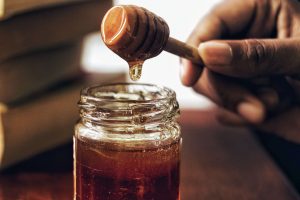
Honey, often dubbed “liquid gold,” has been used for centuries as a natural remedy for various ailments. When it comes to allergies, locally sourced honey is the key. Local honey contains trace amounts of pollen from the same plants that trigger your seasonal allergies. Consuming this honey acts as a form of immunotherapy, helping your body build up tolerance to the allergens and ultimately reducing your allergic response. Just a spoonful a day can make a significant difference.
Foods to help alleviate seasonal allergies:
But honey isn’t the only food that can come to your rescue during allergy season. Here are some other options to try in the allergy-fighting diet:
Salmon and other oily fish
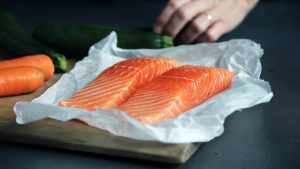
Fatty fish like salmon, mackerel, and sardines are rich in omega-3 fatty acids, which have anti-inflammatory properties. These healthy fats can help reduce allergic reactions and ease symptoms, making salmon a delicious and nutritious choice to include in your allergy-fighting diet.
Apples
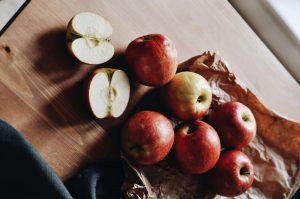
An apple a day not only keeps the doctor away but can also help alleviate allergy symptoms. Apples are rich in quercetin, a natural antihistamine that can reduce allergic reactions and inflammation.
Ginger
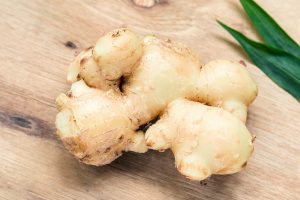
Ginger is a powerful anti-inflammatory agent known for its ability to relieve congestion and soothe irritated throats. Incorporate ginger into your diet through tea, stir-fries, or smoothies.
Tumeric
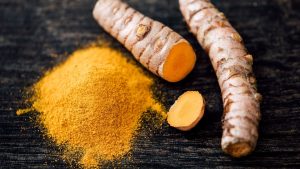
Curcumin, the active compound in tumeric, is a potent anti-inflammatory and may help reduce allergy symptoms. Try adding tumeric to soups, stews, or your morning smoothie.
Pineapple
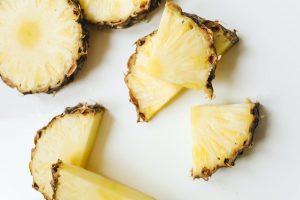
Pineapple contains an enzyme called bromelain that can ease allergy-related nasal congestion and improve respiratory function.
Citrus Fruits
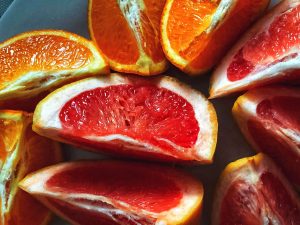
While it’s an old wives’ tale that vitamin C prevents the common cold, it may help shorten the duration of a cold as well as offer benefits for allergy sufferers. Eating foods high in vitamin C has been shown to decrease allergic rhinitis, the irritation of the upper respiratory tract caused by pollen from blooming plants.
Nuts and seeds
Almonds, flaxseeds, and chia seeds are excellent sources of vitamin E and magnesium, which can help support the immune system and reduce allergy symptoms.
Local pollen
In some cultures, people consume local pollen granules as a supplement to help build immunity to local allergens. However, consult with an allergist before trying this method.
While these foods can be a valuable addition to your diet, it’s important to remember that they are not a replacement for allergy medications when needed. Allergies can vary in severity, and some individuals may require medical intervention to manage their symptoms.
Incorporating these seasonal foods into your diet can be a delicious and natural way to combat hay fever and allergies. So, the next time you’re reaching for the antihistamines, consider reaching for a plate of fresh, allergy-fighting foods to help you breeze through the changing seasons with a smile on your face and a clearer nose.
ALSO SEE: Protein-rich foods to boost your metabolism
Feature image: Pexels

